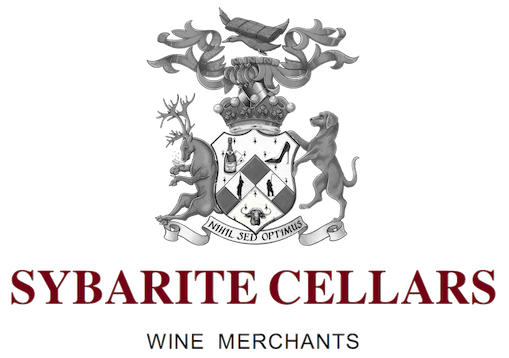Terminology & Definitions
(O) Organic - View wines >
(B) Biodynamic - View wines >
(N) Natural - View wines >
(LS) Low/No Sulphite - View wines >
(V) Vegan - View wines >
(O) Organic
Organic wines are wines made from grapes grown in accordance with principles of organic farming - there are two types of organic listings. Wines can be made from certified organically grown grapes, avoiding any artificial chemical fertilizers, synthetic pesticides, fungicides and herbicides or additives, or, to take it a step further, “organic” wines are made from organically grown grapes, and are also made without any added sulphites (though naturally occurring sulphites will still be present).
![]()
(B) Biodynamic
Biodynamic wine is wine made by employing biodynamic methods both to grow the fruit and during the post-harvest processing - biodynamic farming incorporates ideas about a vineyard as an entire ecosystem.
Biodynamic wine production uses organic farming methods (e.g. employing compost as fertilizer and avoiding artificial chemical fertilizers, synthetic pesticides, fungicides and herbicides or additives) while also employing soil supplements prepared according to Rudolf Steiner's formulas, following a planting calendar that depends upon astronomical configurations and lunar cycles, and treating the earth as "a living and receptive organism.

(N) Natural
Natural Wine is farmed organically (biodynamically, using permaculture or the like) and made, or rather transformed without adding or removing anything in the cellar. No additives or processing aids are used, and ‘intervention’ in the naturally occurring fermentation process is kept to a minimum. As such neither fining nor (tight) filtration are used. The result is a living wine - wholesome and full of naturally occurring microbiology.

(LS) Low/No Sulphite
The term sulphites is an inclusive term for sulphur dioxide (SO2), a preservative that’s widely used in winemaking (and most food industries) for its antioxidant and antibacterial properties. SO2 plays an important role in preventing oxidization and maintaining a wine’s freshness.
Sulphates and Sulphites…
Both sulphates and sulphites are sulphur-based compounds. Sulphates are salts of sulphuric acid, and you probably encounter them on a daily basis. Sodium lauryl sulphate, a strong detergent that aids in removing grease by binding oil to water, is in everything from dish soap and floor cleaners to body washes and shampoo; some people feel it’s too harsh for body products, which is why some shampoos and other products are advertised as "sulphate-free."
Sulphates aren’t involved in wine production, but some beer makers use calcium sulphate - also known as brewers’ gypsum - to correct mineral deficiencies in water during the brewing process.
Sulphites are naturally occurring compounds found in all wines; they act as a preservative by inhibiting microbial growth. Consuming sulphites is generally harmless, and they are found in all kinds of things, from molasses to dried fruit. But some people, especially asthmatics, can have an allergic reaction to sulphites, which is why you see the warning that wine contains sulphites. Unfortunately, people that experience headaches or flushing after drinking wine often wrongly blame sulphites because of that warning on the label. It causes a lot of confusion.
Are Sulphites Harmful?
Consumption of sulphites is generally harmless, unless you suffer from severe asthma or do not have the particular enzymes necessary to break down sulphites in your body….and if you do have a sulphite allergy (which can develop over the course of your life) it is more likely to reveal itself through something other than wine.
How Much Sulphites Are in Wine?
Sulphites develop naturally as a by-product of fermentation. Naturally occurring sulphites are generated in very small amounts ranging from 6 to 40 parts per million (ppm). All wine, beer and cheese contain some natural sulphites. The amount of sulphites that a wine can contain is highly regulated around the world. Any wine containing more than 10 parts per million (ppm) of sulphur dioxide must affix to the label ‘contains sulphites’. The presence of natural sulphites is so small that it normally does not present a problem to anyone but the most sulphite-sensitive.
Winemakers the world over have added tiny amounts (parts per million) of additional sulphite to wine for centuries, going all the way back to ancient Egypt. Added sulphites prevent wine from oxidizing and spoiling, allowing it to age and develop its full flavour potential. Also, thanks to modern winemaking techniques, today’s wines have the lowest amount of sulphite that they have ever had. Most wines with ‘added’ sulphites contain only 25-150 ppm, although the legal limit in wine is 350 ppm.
![]()
(V) Vegan
(suitable for Vegetarians)Vegan wine, or wine suitable for vegans, is wine where the finings used in the production process are not animal based or the process used is simply to allow the wines to settle and stabilise. Typically, animal additives used in fining and filtering phases of winemaking include isinglass (dried swim bladders of fish), albumin (egg whites) and casein (milk protein) - in wine suitable for vegans, bentonite clay, limestone or plant protein, can be used for this process instead.
Finings are added to the wine to clarify it before bottling. The finings will pass through the wine, floating to the bottom of the barrel or tank and collect any of the impurities along the way. When the wine is bottled the collected sediment at the bottom of the barrel is left undisturbed before being disposed of.

